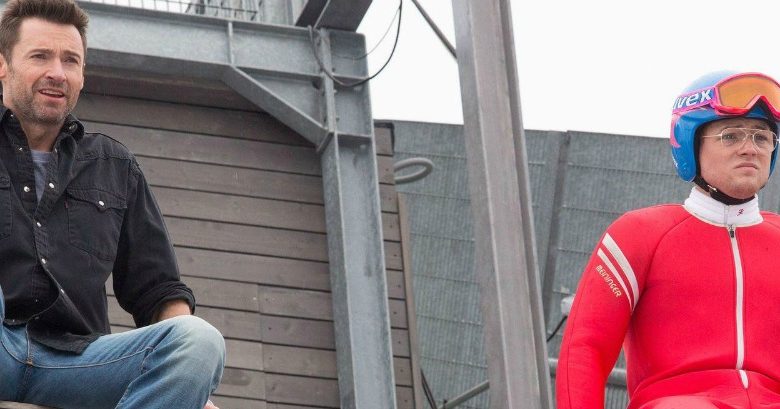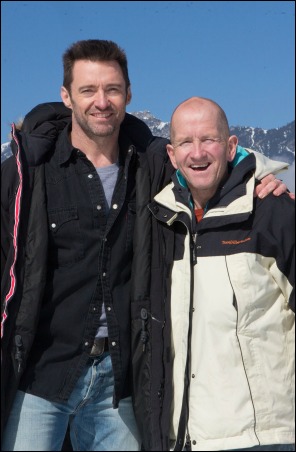‘Eagle’ Director: I Won’t Mock Last-Place Olympian

Yes, the man known as Eddie the Eagle wasn’t elegant or even accomplished during the 1988 Olympic Games. He posed no threat to his fellow athletes, most of whom could realistically dream of a gold medal. Still, the image that jumped off TV screens, aided by the reporters from the era, was that of a buffoon.
Fletcher hopes “Eddie the Eagle” corrects the record.
“What I found interesting [about the screenplay] was the chance to show him in a different light,” Fletcher says. Getting to know the real Edwards only intensified that impulse.
“Once I met the man I had more respect for him,” Fletcher says. “He knew he’d come in last … the win for him was being there.”
The film stars Taron Egerton as Eddie, a kind-hearted lug who longed to compete in the Olympic games. Easier said than done, of course. Eddie turns to the ski jump event as his best chance at Olympic glory. That begins a journey that no one, including his own father according to the film, thought he had a right to so much as start.
Ironically, an early “Eddie the Eagle” draft heaped ridicule on its protagonist, much like the media memories Fletcher recalls from his youth.

That draft, “made him a complete figure of fun,” a narrative where people cringed in embarrassment at his attempts. It’s no wonder Edwards grew wary of the project’s potential.
Fletcher still made the “film I need to make,” he says. In the back of his mind, though, he remembered the real “Eagle” would watch the movie with his parents.
Jackman, typically the lead in most of his films, took a supporting role to play Eddie’s hard-drinking coach. Fletcher says the “X-Men” mainstay threw his weight around the set in the very best of ways.
“He’s this big, A-list movie star, no two ways about it,” Fletcher recalls, adding Jackman handed out Lottery scratch tickets to his fellow crew members – even his director. “He knows everyone’s name on the set … something like that makes a difference.”
Did Jackman worry about coming in second place to the young man behind last year’s hit “Kingsman: The Secret Service?”
“He’s secure enough to let Taron [Egerton] take center stage and have the floor,” Fletcher says.
FAST FACT: Today, Michael Edwards lives in a small Western England town near where he grew up. He plasters ceilings for a living but give motivational speeches as well.
Fletcher’s own life story packs plenty of obstacles, from being homeless at one point to battling addiction. Did that help him capture Eddie’s underdog tale? Perhaps.
“Maybe that’s why I connected to it so readily,” he says. “This a great story to tell, with inspiration and redemption. I really love that element of it.”
RELATED: ‘Race’ Runs on Character, Not Victimization
We’re living in the anti-hero golden age, a time when being bad is good for business. “Eddie the Eagle” defies that trend, and Fletcher doesn’t mind.
“We know the dark side of things. They’re very apparent,” he says. Making an “inspirational” story feels like a dirty word to some, he suggests. The connotation? It’s lightweight entertainment. He begs to differ.
“If you come out [of the film] believing a little bit more about yourself than when you went in, it’s not a bad thing,” he says.
